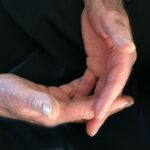This Is the Time of Day Your Testosterone Explodes — Are You Missing It?
Many men wonder what time of day is testosterone highest and how this impacts their health, fitness, and sex life. Testosterone isn’t just about masculinity—it’s the foundation of energy, motivation, and sexual power. Timing your routine with your hormonal rhythm can unlock serious benefits.
The Natural Rise and Fall of Testosterone Throughout the Day
Testosterone follows a daily cycle known as the circadian rhythm. Studies show that levels are highest in the early morning, typically between 6:00 AM and 10:00 AM. After this window, levels gradually decline as the day progresses, reaching their lowest point in the evening.
This pattern is most pronounced in younger men and those with healthy endocrine function. If you’re waking up with morning wood, that’s often a strong sign your testosterone is peaking at the right time.
Why Is Testosterone Higher in the Morning?
Sleep plays a vital role in testosterone production. During deep REM cycles, your body releases luteinizing hormone (LH), which signals the testes to produce testosterone. A solid night’s rest—ideally 7 to 9 hours—ensures that your body completes multiple REM cycles, leading to peak testosterone production by morning.
That’s why men who suffer from sleep deprivation often experience low testosterone symptoms such as low libido, poor focus, fatigue, and even erectile issues.
Benefits of Morning Testosterone Peaks
Timing your activities around your hormone levels can maximize performance. Here’s how to use your morning testosterone surge strategically:
- Morning Workouts: Training between 6–10 AM leverages your natural hormonal boost, increasing strength and muscle gain.
- Sexual Activity: Morning sex is often more satisfying and effective due to higher libido and stronger erections.
- Productivity: Testosterone enhances focus and mental clarity, making the early hours ideal for problem-solving and goal setting.
Does This Apply to Every Man?
Age, stress levels, sleep quality, and underlying health conditions can all impact your daily testosterone cycle. Older men or those with low testosterone and anxiety may not experience the same sharp morning rise.
However, men of all ages can improve their hormonal rhythm with consistent lifestyle changes—starting with better sleep hygiene, reduced alcohol, and natural supplementation.
How to Support Your Natural Testosterone Rhythm
Want to ensure your testosterone hits its morning peak? Here’s what to do daily:
- Sleep 7–9 Hours: Go to bed before midnight and wake up naturally without an alarm if possible.
- Expose Yourself to Sunlight: Morning light exposure balances your circadian rhythm and supports testosterone production via vitamin D synthesis.
- Lift Weights: Resistance training triggers an anabolic response that further boosts testosterone.
- Eat Fat and Protein: Breakfasts rich in eggs, avocado, and nuts help fuel hormone production.
Other Factors That Disrupt Testosterone Timing
Men who experience irregular sleep, late-night screen exposure, or chronic stress may miss out on their natural testosterone highs. Blue light from phones and laptops suppresses melatonin, disrupting the sleep-testosterone connection.
Overtraining without recovery, excessive alcohol use, and obesity also interfere with hormonal balance. If you’re not feeling the effects of morning testosterone, these could be culprits.
How to Tell If You’re Experiencing Morning Testosterone Peaks
Here are a few signs you’re on the right track:
- Waking up with spontaneous morning erections (“morning wood”)
- Feeling energized and mentally sharp within 30 minutes of waking
- Increased libido and sexual thoughts early in the day
If these signs are missing, it could indicate that your hormonal cycle is off track.
Does Morning Testosterone Affect Sexual Confidence?
Absolutely. Testosterone fuels desire, stamina, and erection quality. Men wondering how to cure performance anxiety in bed should consider optimizing their testosterone rhythm first. The confidence that comes with hormonal balance is a game-changer in and out of the bedroom.
Morning Testosterone and Body Composition
Another benefit of syncing with your hormonal rhythm is fat loss and muscle gain. Testosterone helps burn fat and build lean mass. That’s why morning workouts are a secret weapon for many fitness-conscious men.
When Should You See a Doctor?
If you’re consistently lacking energy, suffering from low libido, or not waking with erections, it’s worth checking your testosterone levels. Blood tests done before 10 AM offer the most accurate results because they capture peak hormone levels.
If you find that your levels are low, natural interventions should be your first line of defense. Medications like TRT (testosterone replacement therapy) come with risks and should be carefully considered.
Final Takeaway: Optimize Your Day with Hormonal Precision
Knowing what time of day is testosterone highest gives you a powerful edge in health, performance, and sex. Align your routine with your body’s natural peak, and you’ll unlock more strength, sharper focus, and better intimacy.
How Age Affects Testosterone Timing
As men age, testosterone production gradually declines. But not only do total levels drop—so does the intensity of the morning peak. While a 25-year-old might experience a sharp rise upon waking, a 55-year-old may have a flatter curve, with smaller hormonal fluctuations.
That doesn’t mean older men are out of luck. By improving sleep, reducing stress, and supporting the endocrine system naturally, even men over 50 can restore some of that hormonal rhythm.
Role of Cortisol in Morning Testosterone
Cortisol, the stress hormone, also spikes in the morning—right around the time testosterone peaks. This can be a double-edged sword. In healthy men, this dynamic balance gives energy and drive. But if cortisol is too high due to chronic stress, it may suppress testosterone and blunt the morning rise.
Managing stress through mindfulness, breathwork, or even cold showers can help balance this hormonal interplay.
Does Morning Testosterone Impact Fertility?
Yes. Higher morning testosterone often means better sperm quality and motility. If you’re trying to conceive, morning intercourse may align with peak fertility performance. It’s one reason many couples are encouraged to plan sex in the early hours.
How Diet Can Influence Your Morning Testosterone
What you eat the night before and first thing in the morning has a surprising impact. Avoid high-carb or sugary breakfasts that spike insulin, which can lower testosterone. Instead, prioritize:
- Eggs (rich in cholesterol, a building block for testosterone)
- Beef liver (high in vitamin A and zinc)
- Avocado and olive oil (healthy fats support hormone production)
On the flip side, low-fat diets or excessive calorie restriction can crush your morning testosterone, especially if paired with poor sleep.
Morning Wood and Testosterone Peaks
One of the easiest ways to track your testosterone is by monitoring morning erections. If you’ve noticed a decrease, you’re not alone. Many men ask why am I not getting morning wood anymore—and the answer often lies in disrupted hormonal cycles and poor sleep quality.
Restoring testosterone levels naturally is often the best first step to bringing back this critical sign of male health.
Testosterone and Motivation
Testosterone fuels not just physical performance but mental ambition. The morning spike correlates with higher dopamine levels, which boost motivation, assertiveness, and goal-oriented behavior.
If you find yourself procrastinating or lacking drive, syncing with your natural testosterone peak may help reignite your fire—whether it’s at the gym, at work, or in bed.
Strategic Planning Around Testosterone Peaks
Use your hormone cycle to your advantage. Plan these activities before noon:
- Job interviews or important meetings
- Public speaking engagements
- Challenging physical workouts
- Sexual intimacy if you’re trying to perform at your best
Your body is biologically primed to win early in the day. Don’t waste that window on doom-scrolling or busywork.
Can You Extend Your Morning Testosterone Window?
Yes. Intermittent fasting, cold exposure, and early morning workouts can help extend the duration of elevated testosterone into the late morning or early afternoon. Some men also find success stacking natural boosters like:
- Zinc and magnesium
- Ashwagandha
- D-Aspartic Acid
- Boron
Interlinking Hormonal Health and Anxiety
Many men ask can low testosterone cause anxiety? The answer is yes. Hormonal imbalances affect neurotransmitters that regulate mood. Ensuring your testosterone peaks in the morning can provide a natural emotional buffer, reducing overthinking and self-doubt.
Summary: Turn Morning Into Your Power Hour
Your hormones are not random—they’re a well-orchestrated symphony. Understanding what time of day is testosterone highest gives you the chance to perform better, feel stronger, and live more confidently.
If you’re not already structuring your life around your testosterone peak, now’s the time to start. It’s free, natural, and incredibly effective.
How to Track Your Testosterone Rhythm Accurately
If you want to take full control of your hormonal health, consider tracking your testosterone with more precision. Here’s how:
- Get a Morning Blood Test: Schedule your lab work between 7–10 AM for the most accurate readings.
- Use a Symptom Journal: Note mood, libido, energy levels, and morning erections daily to spot trends.
- Wearable Tech: Devices that monitor sleep stages and HRV can help you assess how your lifestyle affects hormonal recovery.
With this information, you can tailor your habits, diet, and sleep patterns to consistently hit your testosterone peak—and keep it there.
 The Best Time of Day to Maximize Your Testosterone – masculine growth symbolism – via supremepenis.com
The Best Time of Day to Maximize Your Testosterone – masculine growth symbolism – via supremepenis.com








